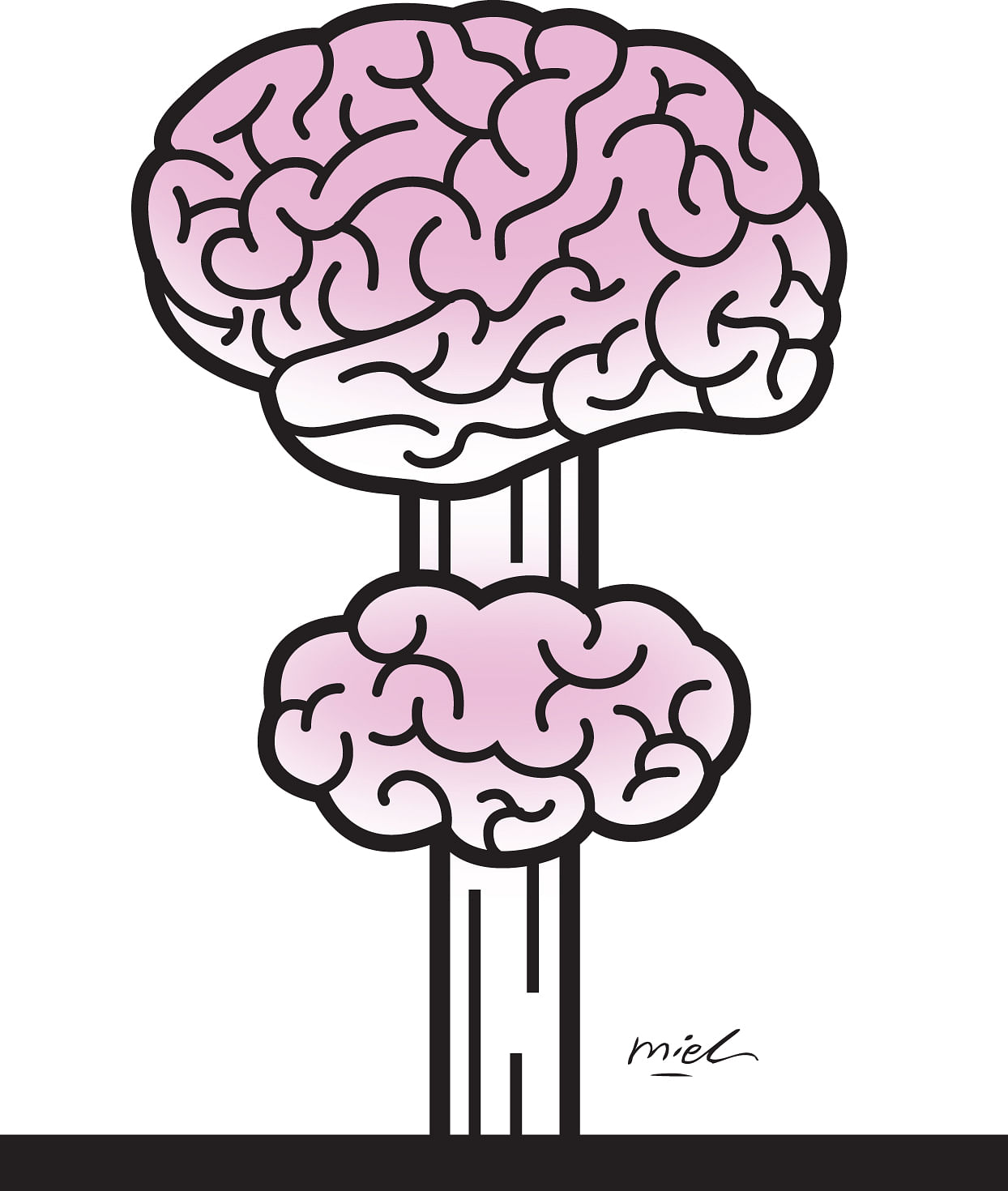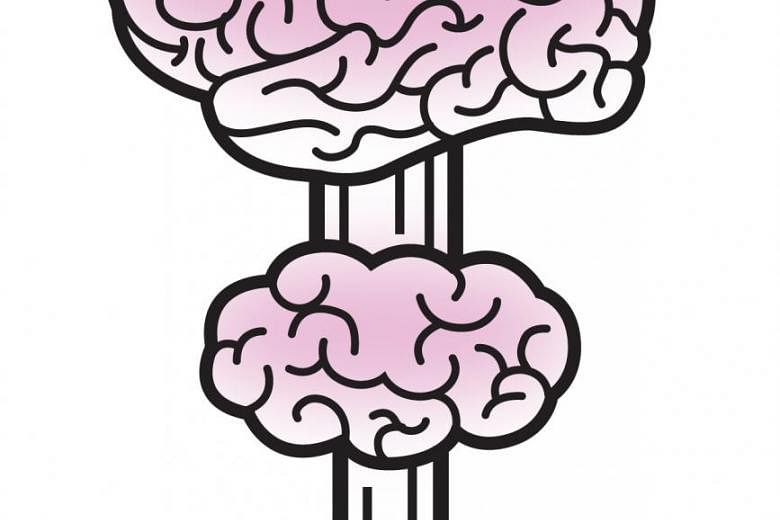In 1992, this newspaper undertook the first major survey on private tuition in Singapore.
It found that a third of all students, from Primary 1 to pre-university, got extra help with their school work, for which parents paid about $150 a month.
Educationists expressed concern at the extent of tuition and the money being thrown at it.
More than 20 years later, the habit has become, if anything, even more entrenched.
A recent survey done jointly by The Straits Times and research company Nexus Link found a much higher prevalence of tuition, with seven in 10 parents of children from pre-school to secondary levels sending them to tuition classes. Tuition is defined as extra classes for academic subjects English, Mother Tongue languages, Maths and Science, and does not include "enrichment" classes such as for music or dance.

That tuition has become the mainstay of the majority did not surprise many, but several educationists and academics interviewed were alarmed that the rat race starts with children as young as five years of age. Four in 10 parents with pre-school children now purchase extra academic coaching for them.
When asked why, the overriding reason was for better school grades.
In the same breath, however, only a third of all parents said the extra tuition actually improved academic performance by "a noticeable extent".
It seems parents are paying for something that they know is not helping. So why are they doing it? For many parents, it's because others are doing it and they want their children to keep up.
NOT HELPFUL
Studies bear out the finding that tuition doesn't necessarily result in academic gains. Several correlational studies, including one done by the Organisation for Economic Cooperation and Development (OECD), have found no link between tuition and better performance.
The OECD's 2009 Programme for International Student Assessment (Pisa) study on 15-year-olds ranked Singapore first among 18 countries when it came to the prevalence of tuition. But the study also found that those who had extra tuition did not do better in the Pisa test than those who did not.
Research points to tuition not only being a waste of time and money but also counterproductive, both for individuals and society as a whole, warns Nanyang Technological University economist Euston Quah.
Prof Quah, who published a small study on the issue with co-researcher Roland Cheo in 2005, found that too much private tuition actually hurt academic performance. The study looked at 429 Secondary 2 students from three schools. It found that among students of the same ability, those who spent more time on tuition fared worse.
There is also an opportunity cost to society in terms of the forgone pursuits of other activities such as sports, music, literature and other arts which nurture skills such as communication, teamwork and resilience, he said. If anyone benefits from private tuition, it appears to be the providers themselves.Today, families spend a median monthly amount on tuition that ranges from $155 to $260.
It adds up to a staggering $1.1 billion a year spent on tuition, according to the national Household Expenditure Survey released last year.
Is it any wonder when, according to the ST survey, 40 per cent of five- and six-year-olds, 80 per cent of primary school children and 62 per cent of secondary school children have extra tuition?
SERIOUS STUDY NEEDED
The picture presented by the ST survey - of a tuition industry gaining traction and trading on the insecurity and anxiety of parents - is troubling. Thus it is important that the Government undertakes a serious study on the place and value of tuition.
It is not enough for the Ministry of Education to say tuition isn't necessary, as Senior Minister of State Indranee Rajah did two years ago. Or to emphasise the importance of all-round development to thrive in the VUCA - volatile, uncertain, complex and ambiguous - world.
Talk alone will not break the entrenched tuition habit. What is needed is actual studies and real data on whether tuition is helpful.
It may be that tuition helps some segments of students who struggle. Or that tuition actually ends up harming their performance.
Whatever the answer, good studies with good data can then be used to shape parental behaviour when it comes to sending their children for tuition.
If tuition is shown to be ineffective, then many parents might be persuaded to spend their money and their children's time on more fruitful activities.
The growing prevalence of tuition is a worrying sign as Singapore may be headed in the direction of South Korea and Hong Kong. University of Hong Kong academic Mark Bray, one of the foremost experts on tuition, said it was bad enough when Hong Kong parents began sending their pre-school children for tuition. Now they are sending babies as young as six months for lessons on recognising colours.
Tuition class sizes have ballooned with some centres packing more than 100 students in lecture theatres at night, and providing webcasts for students in adjoining classrooms.
In South Korea, the authorities even began enforcing a curfew on tuition centres, dispatching patrols to ensure that cram schools called "hagwons" kept to the 10pm closing time.
KEEPING UP WITH OTHERS
In the ST-Nexus Link survey, even more troubling than the pervasiveness of tuition is the underlying reason for it.
The second most common reason given by parents polled for the survey was that they want their children to keep up with their peers. Indeed the fuel to the tuition trend is the competition parents feel from the education system through high-stakes examinations such as the PSLE, said Professor Bray.
He said: "The PSLE streams students according to their academic performance and it decides the schools and streams they go into.
"Such a system adds to parents' anxiety and they turn to the tuition market to give their children the extra push."
Associate Professor Jason Tan from the National Institute of Education agrees. "Parents think, everyone else is doing it, so there must be something to it. And if I don't, my child will lose out," he said.
This comes across quite strongly in interviews with parents. One lawyer said she was a "relaxed parent" until her daughter got to Primary 5. In the school exams, despite scoring in the 70 to 80s range, her sports-loving daughter would repeatedly be among the bottom five in class. At the yearly parent-teacher meeting, she found out her daughter was the only one in her class not getting private tuition.
She replaced the swim and dance classes with tuition three times a week. "PSLE is a ranking exam and decides which stream and secondary school my child will enter. If everyone else is getting tuition to improve their results, then how can I not provide tuition for my child? She will lose out," she argued.
This sort of thinking of education as a zero-sum game bodes poorly for any meaningful change to the system, even if the grading for PSLE is reworked. However, policymakers can only do so much. Parents have a part to play as well in asking themselves if they are adding to the education rat race.
Every year, a number will complain to me about teachers not giving enough homework or extra classes in the run-up to exams.
And it is one thing seeking extra help for a child struggling in one or two subjects, but another to send a top-performing child for tuition.
A Straits Times report last year revealed that the majority of pupils in the Gifted Education Programme - an elite programme for the academically gifted - were taking supplementary tuition lessons outside of school.
Today's education experts concur that qualities such as self-control, resilience, grit and determination are key to success in life. Allowing your child to struggle with her learning will probably give her a better preparation for life, than packing her off to a private tutor to coax another few more marks for her Maths and English exams.
In 2010, in a Time magazine report on how seven out of 10 Korean children had extra tuition, a former Singapore education minister was quoted as saying: "We're not as bad as the Koreans."
Perhaps not, in terms of obsessive cram schools that go on all night. But we are already there, with seven in 10 here getting tuition today.
Tuition has become a mainstream activity for Singapore students. Yet education officials continue to maintain it is not necessary. Parents too concur - but send their children for it anyway, because everyone else does.
When a society enters into an educational arms race where every parent pushes his child harder to keep up with the rest, we have the makings of a social crisis.
What can arrest the trend of rising tuition and rising anxiety? Two things: Hard evidence that tuition is not helpful, even harmful. And informed parents who buck the trend.
Read the news stories:
Starting from pre-school, parents sending kids for classes in race to keep up with peers



